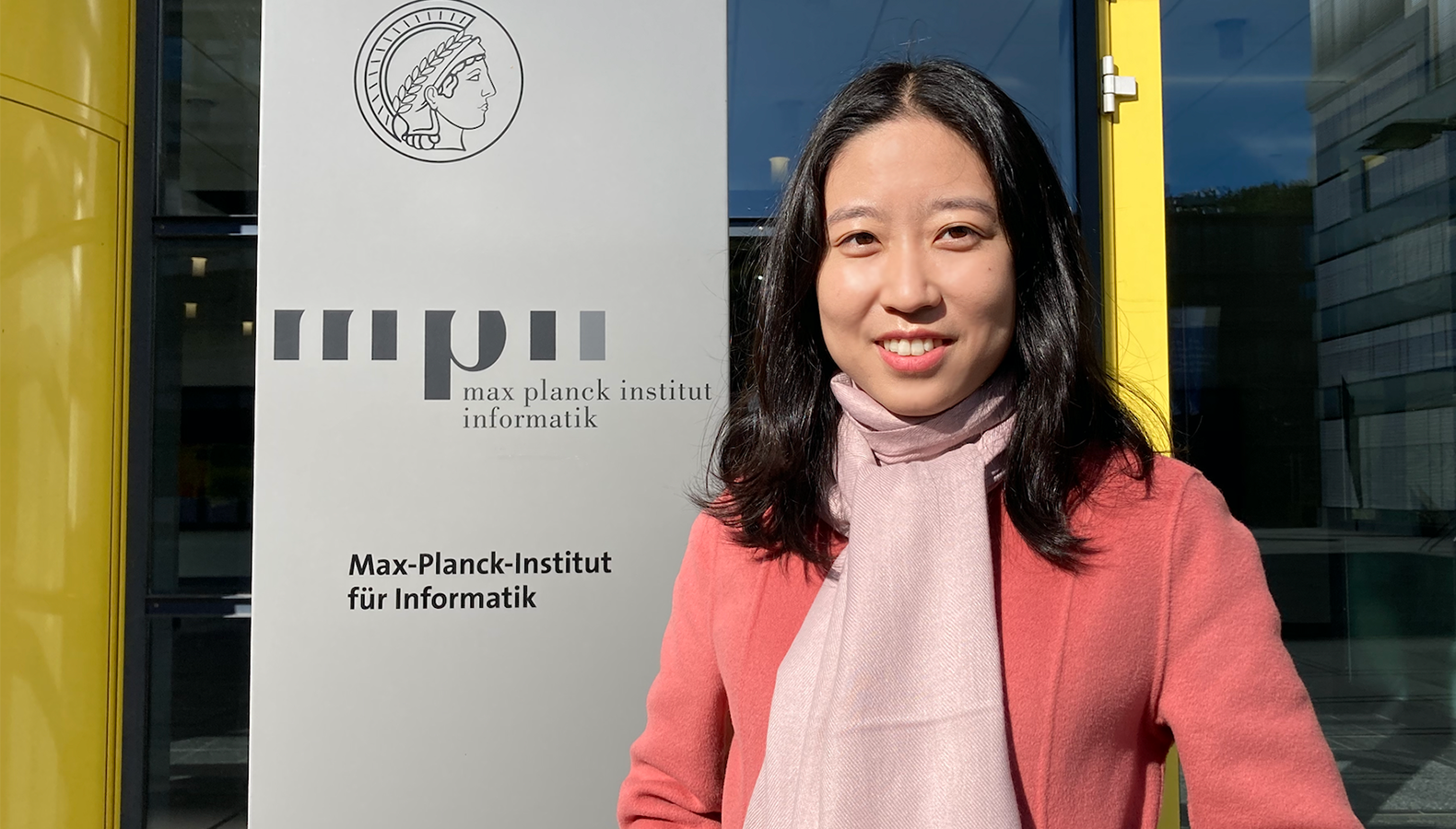Like many other computer science students, Rice Computer Science alumna Yiting Xia (PhD, 2018) contemplated academia vs. industry as she approached graduation. Wanting to see how the network infrastructure research she was doing could impact the real world outside of a lab, she decided to accept a position as a research scientist at Facebook in Silicon Valley.
She spent two years on their network team, designing and maintaining Facebook’s network infrastructure. She gained hands-on experience with network architecture design and network management in diverse network environments.
“In Silicon Valley, I worked with a lot of people from different backgrounds, top PhDs from around the U.S.,” Xia says. “Industry exposed me to a more complicated environment.” Her years at Facebook make her unique in comparison to others who go into academia immediately upon graduation.
Rice Computer Science Professor T. S. Eugene Ng, Xia’s doctoral advisor, says, “Her experience at Facebook has given her front-line experience and insights from a large and complex global service provider. Many seasoned faculty members spend their sabbaticals at Facebook for precisely this experience.”
While Xia valued her time at Facebook, she came to miss her former research, and in 2020, she returned to academia.
When asked how she ended up in Germany, she explains, "Covid changed my life trajectory quite a bit." She went back to China for Chinese New Year at the end of January 2020 and found that she couldn't return to the U.S. “But luckily, with my PhD, there were opportunities internationally,” Xia explains.
She was able to interview online for a number of different positions and eventually chose Max Planck Institute for Informatics (MPI-INF) where she leads the network and cloud systems group and is a tenure-track faculty member. “MPI-INF is one of the most selective programs in Europe for students,” says Xia.
It was a Rice connection that led her to the institute where she is currently a faculty member. Peter Druschel, a director at MPI-SWS, a sister institute of MPI-INF, was a computer science professor at Rice.
According to Xia, "I benefited a lot from Rice and the U.S. PhD system." Many of the professors at her current institute got their PhDs in the U.S., and because of that, she's very comfortable with the environment. Her current institute is styled after U.S. programs such as Rice and has a tenure-track system.
While at Rice, Xia’s research was on building novel networked systems using physical-layer programmability. Her current research is an extension of her research at Rice, exploring what the next gen cloud should look like.
She has an ambitious goal to combine optics communication and computer systems. Xia says, “Combining sounds too bold, because they are now separate. With the development of networking, optical networking is becoming very important...Systems comm is developing as well.”
“How do you combine those technologies?” she asks. “Right now, they are very different areas. Optical researchers are developing optical technologies without an understanding of the real-world applications, and system builders are unaware of the “black magic” optical advancements. Because of my unique background, I can see both work, and because of my industrial experience, I can see the need. In the next five years, we’ll combine these two and develop core technology.”
Professor Ng praises Xia’s work, saying “Yiting’s research spans a wide range of topics and covers many aspects of an entire network/application stack. Her ability to work across the entire stack is quite exceptional!”
Xia credits her time at Rice and the network of people she met here for helping her. “Rice has a really good alumni network in industry and academia,” she says. “I’m really proud of being part of Rice. Rice gave me a very solid foundation in core computer science education. My time at Rice really prepared me for this academic job.”
“I have a good connection with the [Rice] team,” she says. “We still talk and help each other.”
She adds, “I’m very grateful for my advisor Eugene. He is the most patient person I’ve ever known.”
“Students need time to grow,” she says. “[Eugene] lets you do things yourself—learn how to develop an idea, make connections.”
As for that familiar question, Xia advises students debating between academia and industry, “It’s okay to be confused. It’s okay to make mistakes...Don’t be afraid. If you’re not sure, try it out. Work in industry for one to two years. People value industry experience.”
She goes on to add, “if you want to return to academia one day, stay active, keep publishing, keep collaborating with universities...try to get exposed to more areas, take advantage of internal resources. Talk to colleagues on other teams and seek out cross-team projects.”

